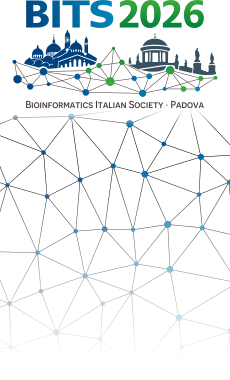Mathematical modeling of human antibody affinity maturation
Supervisor:
Supervisor:
Sonia Budroni, PhD
Research Investigator I, Quantitative Biology
Novartis Vaccines, Siena
Contact:
sonia.budroni@novartis.com
Contact:
sonia.budroni@novartis.com
Group composition:
Duccio Medini, PhD
Sonia Budroni, PhD
Emilio Siena, PhD
Anna Dari, PhD
Lorenzo Argante, PhD Student
Research interest of Group:
Mission of the Quantitative Biology Unit in Novartis Vaccines Research is the active pursuit of
biological knowledge relevant to vaccine discovery and development by quantitative methods.
Areas of interest include pathogen genomics and trascriptomics, population genetics, assay
development, pre-clinical and translational biostatistics, computational human immunology.
Significant cross-disciplinary research, in collaboration with clinical and translational experimental
teams, is currently focused on the study of the human humoral response to vaccination.
The human immune system is known to generate a diverse repertoire of Antibodies (Abs) by
adaptively improving the recognition of pathogens during immune responses to infection or
vaccination. The affinity of elicited Abs to their substrate is a critical parameter of protective
immunity. However, the complex polyclonal composition of human sera has so far precluded a
complete understanding of the impact of vaccines on Ab affinity maturation.
To reduce this complexity, our team has developed a unique high-throughput methodology, based
on mathematical modeling of the antigen-antibody binding reaction in the Gyrolab® miniaturized
immunoassay platform, to define an affinity score for monoclonal Abs (mAbs) and to de-convolute
polyclonal sera in mAb-like sub-populations.
PhD project:
Currently available technology does not allow measuring the affinity of Abs composing polyclonal
sera to determine the impact of specific vaccines on Ab affinity maturation in vaccinated subjects, a
critical ingredient for systems-vaccinology approaches aimed at dissecting the individual
components of the human response to vaccination.
The objectives of this project is to understand i) how Ab affinity maturation in humans is impacted
by different antigens and adjuvants, vaccination schedule and dosage, and ii) the relationship
between Ab affinity and functional activity required for protection from disease.
To achieve this objective, the candidate will consolidate and optimize a data-regression
methodology to extract affinity profiles of polyclonal sera from Gyrolab data. Preliminary studies
indicated that the spatial distribution of the antigen-antibody capture profile can be describe by an
admixture of Landau distributions. The estimation of optimal model parameters for the deconvolution
of non-gaussian mixtures is, intrinsically, not a trivial task. The candidate will devote
his/her efforts to depicting new methologies to tackle this fundamental aspect in statistical
modeling.
This method can be successfully used in human sera from subject vaccinated with different vaccines
in exploratory clinical trails, to study the maturation of Ab affinity, also in relationship with other
serological measurements, including cellular responses and correlates of protection.
The understanding of the connection between all these measurements can offers the rare
opportunity to select the best vaccine formulation and improve efficacy in human population.
A significant and diverse body of data will be available to the candidate, from exploratory human
vaccine studies performed with protein based, glyco-conjugate and sub-unit vaccines (respectively
anti serogroup B meningococcus, anti Group B Streptococcus and anti influenza virus vaccines).
Technologies employed:
Mathematical and statistical programming; statistical analysis of biological and immunological
data.
PhD technical development:
The PhD Student will develop skills in statistical modeling: Finite-dimensional mixture model,
Generalized Linear Models, Mixed Models approaches.
The Student will analyse immunologic and serological data and develop the statistical and
computational skills needed to integrate the data into a unified analysis framework.




